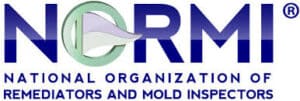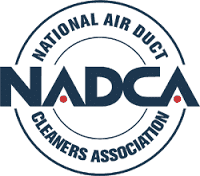When Can You Claim for Water Damage Coverages on Home Insurance?
How to Avoid Being Out of Luck and Make Sure Your Claim Gets Paid

Water Damage and Home Insurance
Water damage is one of the most common causes of home insurance claims. According to ISO, water damage claims are the second largest frequent insurance claim, following wind and hail damage. The percentage of claims due to water damage is also increasing, while other causes of damage have stayed fairly consistent or even decreased. It’s no wonder people have a lot of questions about water damage and what is covered on home insurance, and why things, like “gradual damage” are not covered.
Things get even more complicated when we look at the exceptions. Here’s a review of some water damage claims situations to help you understand.
Types of Water Damage
There are many types of water damage that may be covered or excluded on a home policy such as:
- Sudden or Accidental Discharge
- Sewer backup or water backup
- Overflow
- Flood
- Storm-Related Water Damage Covered by Insurance
Common Questions: What Water Damage Is Covered by Home Insurance?
There are some common questions people ask about what their home, condo, or renter insurance covers for water damage. Here are a few of the most common questions:
- Is a water leak covered by home insurance?
- Is a leaking toilet covered by insurance?
- Is water damage from a leaking roof covered by insurance?
The answer to whether these are covered or not depend on the source of the damage, the type of policy you have and if the water damage is accidental and sudden or gradual.
Gradual damage water damage is not usually covered, so although your policy might have water damage coverages, if the reason for the damage is not sudden and accidental, then you may be denied in a claim.
What is Gradual Damage?
Gradual damage is when something happens slowly over time and causes damage to your property. Gradual damage due to water damage is a common problem when it comes to insurance claims.
An example of gradual damage is when something happens slowly, like paint chipping off a wall it starts with a small chip, then eventually half the wall is uncovered.
Water Damage and Gradual Damage in Your Home
Homes are full of nooks and crannies, pipes, electrical wiring, ventilation systems. Homes are complex structures, and for the most part, the only parts we see in our homes every day are the inside walls, the decorations, and our contents. Underneath it all, there are layers of activity, all making your house run. Without proper maintenance and regular verification of the key components in your home, anything could be going wrong under the surface, and you would never know until the damage causes structural changes or some physical evidence. That’s when we try and make a claim. If the damage is not sudden or accidental, but is the result of a long-standing problem that went undetected you will have a problem in a claim.
What Are Examples of Gradual Damage?
Some of the most common examples of gradual damage causing losses or denied claims are:
- Plumbing, faucets or pipes leaking causing damage to the walls, ceilings or floors .
- pWater damage caused by seepage coming in from cracks in the foundation, or at the exterior of the dwelling allowing water to enter your home.
- Flashing, tiles, shingles or deteriorating parts on the roof that indicate signs of needed repair.
- Mold, rot or corrosion
- Deteriorating electrical wiring
- Poor repairs or lack of repairs to home
It is often hard to understand why a claim gets denied, and one of the most popular reasons for a claim to be denied is when you try and make a claim for something that suddenly appeared to you, but is the result of something that has been happening for a while.
Insurance is meant to cover sudden and accidental damage. By definition, sudden and accidental damage means that whatever has happened, should not have been the result of damage over time.
When Does an Insurance Company Cover Gradual Damage?
This is where things get tricky. You can figure out what an insurance company will and will not cover based on the policy wording. Your insurance advisor, agent or broker is the best person to review the exact details of your wording with you. You will have to review the exclusions of your policy as well as the type of coverage you have.
Water Damage Exclusions on Home Insurance
All insurance policies exclude wear and tear, and gradual damage, however, there may be some “exceptions”.
Example of a Mold Related Water Damage / Gradual Damage Claim
- Mold: Some companies may allow you to purchase coverage for mold remediation. This varies from state to state and by insurance company. In some states like California and Texas, policy makers are pushing to have limited basic mold coverage added to the policies. However, the best way to find out if your policy provides any provision is to inquire with your representative or licensed insurance professional to find out if this could be available to you. It may be available by endorsement; every company is different.
Example of Tree Falling on Roof Causing Water Damage & Gradual Damage
- Following a water damage claim that was covered as a result of a tree falling on the roof and creating an opening in which water poured into the home, the opening and roof were repaired by the insurance company.
- The damage in the home was repaired, however, several months later the homeowners noticed a funny smell or paint chipping near where the repairs had been done. They call the insurance company who took care of the claim, and they are advised that there is still humidity or even worse, newly formed mold where the damage had been. On rare occasions, additional damage may occur after or as a result of a claim, and not be caught. If the gradual damage is a result of the original claim that was covered, the insurance company may cover it.
Broken Pipe and Water Damage Example
- Another example is if something that happened gradually, like a broken pipe, or a broken water tank, or a washing machine breaks due to (unexpected) wear and tear. The actual pipe itself, or washing machine will not be covered. However, the resulting damage from the sudden breakage may be. Technically, the resulting damage is a different cause, and if water damage resulting from a broken pipe, or appliance is listed in your wording as covered, then you would, at least, be compensated for a portion of the damages caused.
Understanding Why a Water Damage Claim is Denied and What You Can Do About It
First, if you are being denied any claim, make sure that you ask for a full explanation. You have every right to understand exactly what part of the policy wording excludes what you are asking for compensation for.
Understand that there are several people who represent the insurance company during a claim, so you want to know where the decision is coming from. Was it your agent who told you, the insurance adjuster,
or a contractor? Each person plays a different role. Don’t be afraid to request clarifications to avoid misunderstandings.
If you still do not understand why something isn’t covered, and you think there is a chance for a review of your situation, don’t be afraid to ask your agent or representative for a review or second opinion. In a stressful situation like a claim, it is understandable that things may not be expressed clearly on either side. You want to make sure you understand fully.
Find out if coverage would have been available to you for this kind of damage through an endorsement. You have a right to know what is covered (or could be available) on your insurance for future reference. You may also want to figure out why you did not have it. If it is available elsewhere, consider changing your company for the future.
If you are convinced that your coverage should have applied, or that something is wrong, then you should consider getting a second opinion by a licensed professional or consumer advocacy organization that is familiar with insurance in your region. Your insurance company may also have an ombudsman that can help review your file. You can also contact your state insurance commissioner for guidance or to file a complaint.
How to Avoid Having a Water Damage Claim Denied
- Maintain records of repairs and the professionals you have hired over the years to do maintenance. This may become very important in the event of a loss, and is good practice to keep as a homeowner.
- Make sure you understand all the coverages on your policy, and have a good understanding of the exclusions, as well as your responsibilities as a homeowner.
- Do regular maintenance of your home every spring and fall to avoid surprises. Small repairs regularly will avoid large expenses.
- Make sure you purchase the best insurance for your needs, and inquire about extra coverages you can add that may be useful to you.
For anything related to water damage cleanup, mold testing, mold removal, or air ducts, call Aspen at 978.328.0882.Or email [email protected].
Aspen Environmental professionals are licensed and insured and members of the National Organization of Remediators and Mold Inspectors (NORMI), the National Air Duct Cleaners Association (NADCA), and the Institute of Inspection Cleaning and Restoration Certification (IICRC).




